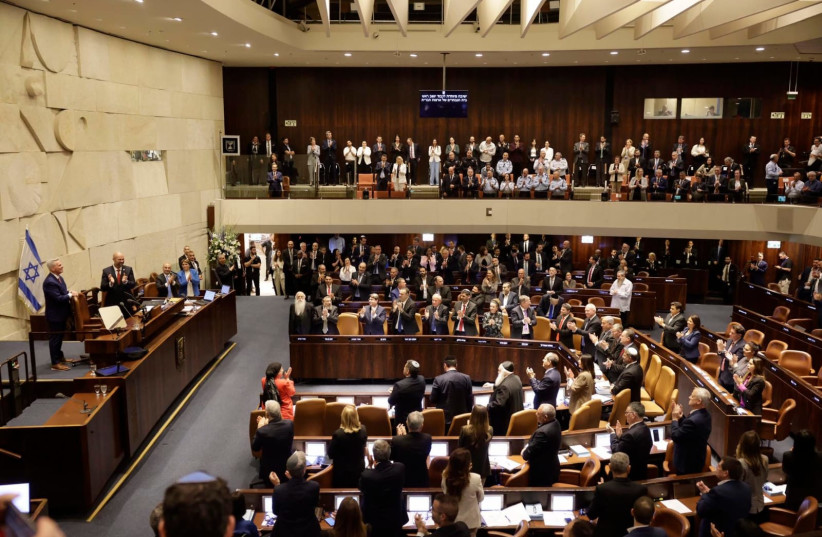The Knesset’s summer session got under way yesterday with an address by Speaker of the US House of Representatives Kevin McCarthy, as well as remarks by Speaker of the Knesset Amir Ohana, Prime Minister Benjamin Netanyahu and opposition leader Yair Lapid.
All the addresses touched, in one way or another, on the elephant in the room: the judicial reform.
With all the noise in recent months, one might be forgiven for thinking that the government’s efforts to overhaul the judiciary and upend the balance of powers between the different branches of government are foremost on the minds of Israelis and that the public wants nothing more than for its elected officials to deal with the crisis surrounding the reform before anything else.
But the numbers tell another story.
What Israelis care about more than anything: The high cost of living
According to a poll conducted by Panels Politics on behalf of Maariv ahead of the new Knesset session, the issue occupying Israelis’ minds above all others isn’t the judicial reform, personal safety or even Iran’s pursuit of nuclear weapons – it’s the high cost of living.

Fully 48% of respondents – nearly half – said the cost of living is the most important issue for the government and the Knesset to tackle in the legislature’s new session, more than twice the 22% who cited the judicial reform and more than three times the 14% who mentioned personal safety. Only 10% of respondents said Iran is the most important issue on the national agenda and only 1% cited Israel’s foreign relations.
The breakdown among voters for Israel’s various political parties is no less intriguing. Among voters for opposition parties, whose leaders have been railing against the judicial reform and warning that it poses a clear and present danger to Israeli democracy, a striking 60% said the high cost of living is the most urgent issue requiring elected officials’ attention, compared to a mere 15% who pointed to the judicial reform.
Voters for coalition parties were more likely to view the judicial reform as more important than the cost of living, but by a fairly narrow margin – 38% compared to 31% of respondents. Voters for the three largest parties represented in the Knesset – Likud, Yesh Atid and National Unity – all placed the cost of living above judicial reform when asked what they believe should be uppermost in the minds of lawmakers.
Israelis are right to be concerned. The price level index for Israel is a stunning 39% higher than the OECD average; only Norway and Switzerland – wealthy countries whose GDPs vastly exceed Israel’s – are more expensive. And while the prices of some consumer items have fallen or remained stable, others are increasing at an alarming rate.
Dairy is a case in point. While Finance Minister Betzalel Smotrich managed to moderate a 16-17% increase in dairy prices that was set to go into effect Monday morning, the deal reached with manufacturers late Sunday night merely spreads the increase over several years.
By May 2026, according to a report by the Post’s Zachy Hennessey, the cost of dairy will have increased by more than the anticipated 16-17% and Israeli consumers will bear the burden. A liter of milk in Israel is already among the most expensive in the world and the cost will only go up.
Housing, too, remains a major concern. Although housing prices dipped by 0.2% in March – the first such decrease in three years – new apartment prices are 12.7% higher than they were at the same point last year. Young families, in particular, have found it increasingly difficult to purchase homes, placing an even greater strain on their limited budgets.
It remains to be seen what impact concerns over the judicial reform will have on Israel’s economy, but warning signs from credit rating agencies and reports that investors are holding back investments or quietly pulling funds out of the country will only exacerbate an already difficult situation.
As judicial reform talks putter along under President Isaac Herzog’s auspices at his residence, our leaders must understand that Israelis would prefer to see their representatives dealing with the literal bread-and-butter issues that affect their daily lives. While the judicial system requires adjustment – a point conceded by both coalition and opposition leaders – it is far more important to make Israel more liveable for all its citizens.
